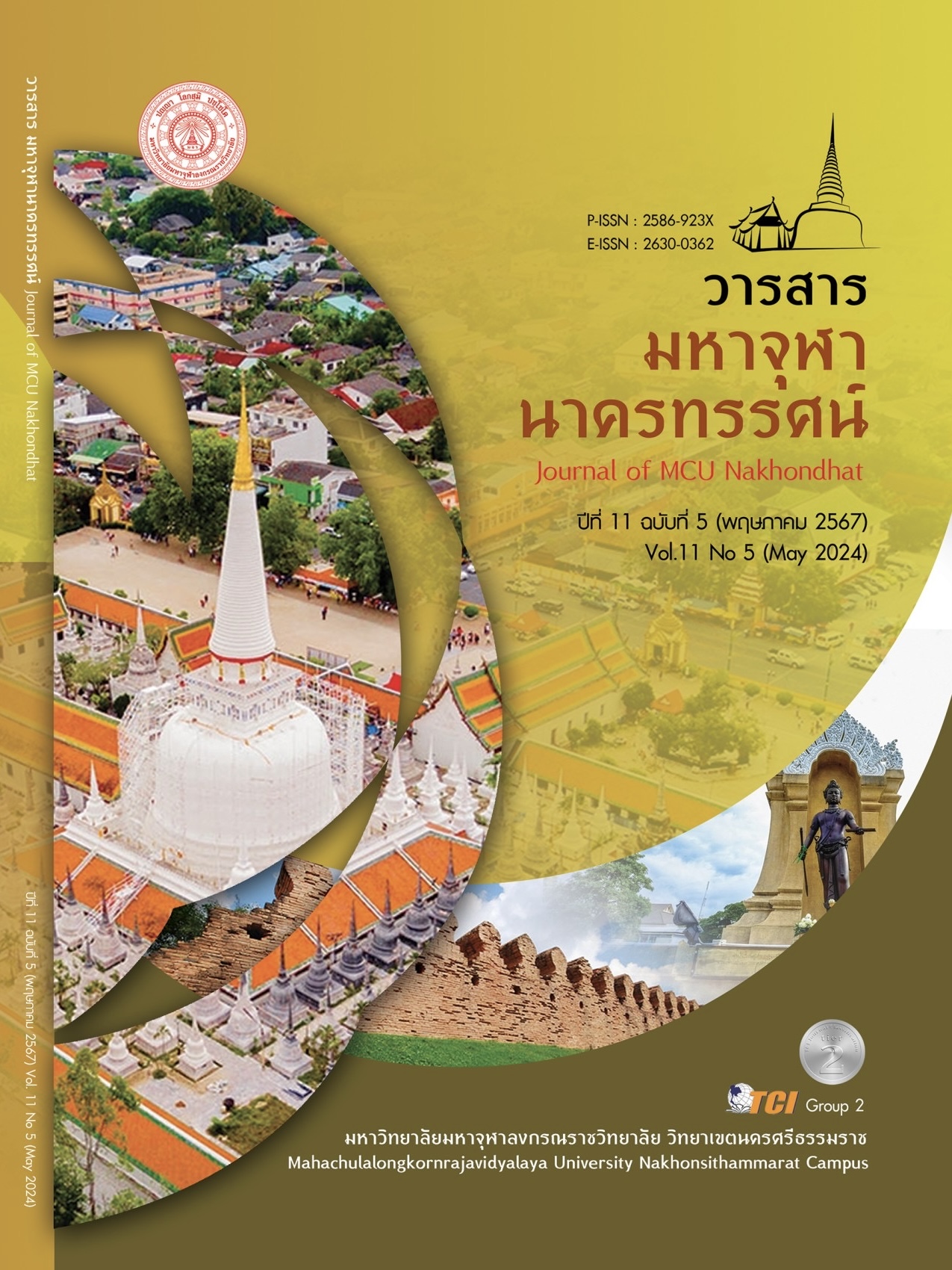KNOWLEDGE MANAGEMENT AND OPINION ABOUT PERFORMANCE EFFICIENCY OF THE STALFS IN THE NATIONNAL HOUSING AUTHORITY EMPLOYS
Main Article Content
Abstract
The objectives of this research article are to study 1) the level of opinions regarding the work efficiency of the National Housing Authority employees 2) compare the level of opinions regarding the work efficiency of the National Housing Authority employees. Classified according to personal factors 3) To study the relationship between knowledge management and the level of opinions regarding the work efficiency of National Housing Authority employees. This study's findings directly benefit the National Housing Authority.Increase capabilities and create competitive advantages in the organization. By equipping administrators with valuable insights to improve work processes. Additionally, it expands the organization's knowledge base on how these practices impact staff performance. Information obtained from the said study results Therefore, it is useful information for the National Housing Authority. A quantitative research approach, utilizaing a survey questionnaire to collect data during January 2024. A sample group of 325 National Housing Authority employees was selected for this study. Data analysis was conducted using a statistical software program, employing techniques Statistics used to analyze data such as frequency distribution, percentages, means, standard deviations, one - way ANOVA, and Pearson correlation coefficient with a significance level of 0.05. The study found that the sample group There is an opinion that National Housing Authority employees Effective in performing tasks Classified according to personal factors, overall at a high level. There were no significant differences in efficiency levels when classified by factors such as gender, age, education level, job level, or work duration. A moderate positive relationship was identified between knowledge management practices and employee performance opinions within the National Housing Authority.
Article Details

This work is licensed under a Creative Commons Attribution-NonCommercial-NoDerivatives 4.0 International License.
References
ณพศิษฏ์ จักรพิทักษ์. (2552). ทฤษฎีการจัดการความรู้. (พิมพ์ครั้งที่ 1). เชียงใหม่: วิทยาลัยศิลปะสื่อและเทคโนโลยีมหาวิทยาลัยเชียงใหม่.
บดินทร์ วิจารณ์. (2550). การพัฒนาองค์การแห่งการเรียนรู้. (พิมพ์ครั้งที่ 1). กรุงเทพมหานคร: บริษัทเอ็กซเปอร์เน็ท จำกัด.
บูรชัย ศิริมหาสาคร. (2550). จัดการความรู้สู่ความเป็นเลิศ Knowledge Management To ExcellenceOrganization. (พิมพ์ครั้งที่ 1). กรุงเทพมหานคร: สำนักพิมพ์แสงดาว.
สำนักงานคณะกรรมการนโยบายรัฐวิสาหกิจ. (2565). คู่มือประเมินผลการดำเนินงานรัฐวิสาหกิจตามระบบประเมินผลใหม่ TRIS CORPORATION LIMITED. เรียกใช้เมื่อ 12 กุมภาพันธ์ 2566 จาก https://www.catc.or.th
สำนักงานคณะกรรมการพัฒนาระบบราชการ และสถาบันเพิ่มผลผลิตแห่งชาติ. (2548). คู่มือการจัดทำแผนการจัดการความรู้. (พิมพ์ครั้งที่ 1). กรุงเทพมหานคร: สำนักงานคณะกรรมการพัฒนาระบบราชการ.
สุภาวดี ขุนทองจันทร์. (2559). การบริหารทรัพยากรมนุษย์อย่างบูรณาการ. (พิมพ์ครั้งที่ 1). กรุงเทพมหานคร: บริษัท ซีเอ็ดยูเคชั่น จำกัด (มหาชน).
Nonaka, I. & Takeuchi, H. (1995). The Knowledge-creating company. New York: Oxford University Press.
Nunnally, J. C. (1978). Psychometric Theory. New York: McGraw-Hill.
Peterson, E. & Plowman, G. E. (1953). Business Organization and Management. (3rd ed). Bangkok: Bill Irwin.
Yamane, T. (1967). Elementary Sampling Theory. New Jersey: Prentice Hall.


